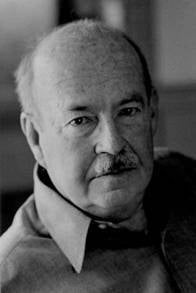Talcott Parsons

Talcott Parsons (1902-1979) was born and raised in New York City. His father was a preacher. Initially, he pursued studies in biology and philosophy, later shifting his focus to economics and sociology. His academic journey led him to London in 1924/1925 and Heidelberg in 1925/1926. In 1929, he earned his doctorate with a thesis on capitalism in German literature. This work made him knowledgeable of European sociologists and economists.
Parsons' academic career started taking shape when he became a lecturer in the economics department at Harvard from 1927 to 1930. It was during this time that he translated Max Weber's work, "The Protestant Ethic and the Spirit of Capitalism", making Weber's ideas more widely known in the United States. In 1944, Parsons became a professor and director of the sociology department at Harvard. From 1946 to 1956, he served as the director of the Department of Social Relations at Harvard, an interdisciplinary institution. In 1949, Parsons held the position of President of the American Sociological Association. By the 1950s, he had become the leading theoretical figure in American sociology, earning him recognition not only within the United States but also internationally.
During the 1950s, he emerged as the most renowned and frequently cited American sociologist worldwide. But the 1960s and 1970s brought a different kind of attention, as Parsons faced intense criticism and even demonization in some quarters of the academic community. On May 8, 1979, Talcott Parsons passed away in Munich at the age of 77.
Parsons' contributions to sociology are encapsulated in several significant works, including "The Structure of Social Action" (1937), "The Social System" (1951), and collaborative efforts like "Toward a General Theory of Action" (1951) and "Family, Socialization and Interaction Process" (1955).
His theoretical framework, often referred to as AGIL, emphasized the need for societies to address four core functions: Adaptation, Goal Attainment, Integration and Latent Pattern Maintenance. These functions are critical for the survival and stability of any society. Parsons believed that these functions required specific subsystems, such as the Fiduciary, Societal Community, Political, and Economic subsystems, each with its unique role.
Parsons' ideas extended beyond sociology and found application in other social sciences. His work laid the foundation for the study of culture, law, politics, and economics as distinct but interconnected components of the larger social system.